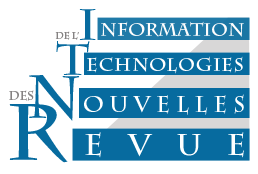Learning Representations Using Causal Invariance
In EGC 2020, vol. RNTI-E-36, pp.5-6
Abstract
Learning algorithms often capture spurious correlations present in the training data distribution instead of addressing the task of interest. Such spurious correlations occur because the
data collection process is subject to uncontrolled confounding biases. Suppose however that
we have access to multiple datasets exemplifying the same concept but whose distributions
exhibit different biases. Can we learn something that is common across all these distributions,
while ignoring the spurious ways in which they differ? This can be achieved by projecting the
data into a representation space that satisfy a causal invariance criterion. This idea differs in
important ways from previous work on statistical robustness or adversarial objectives. Similar
to recent work on invariant feature selection, this is about discovering the actual mechanism
underlying the data instead of modeling its superficial statistics.

